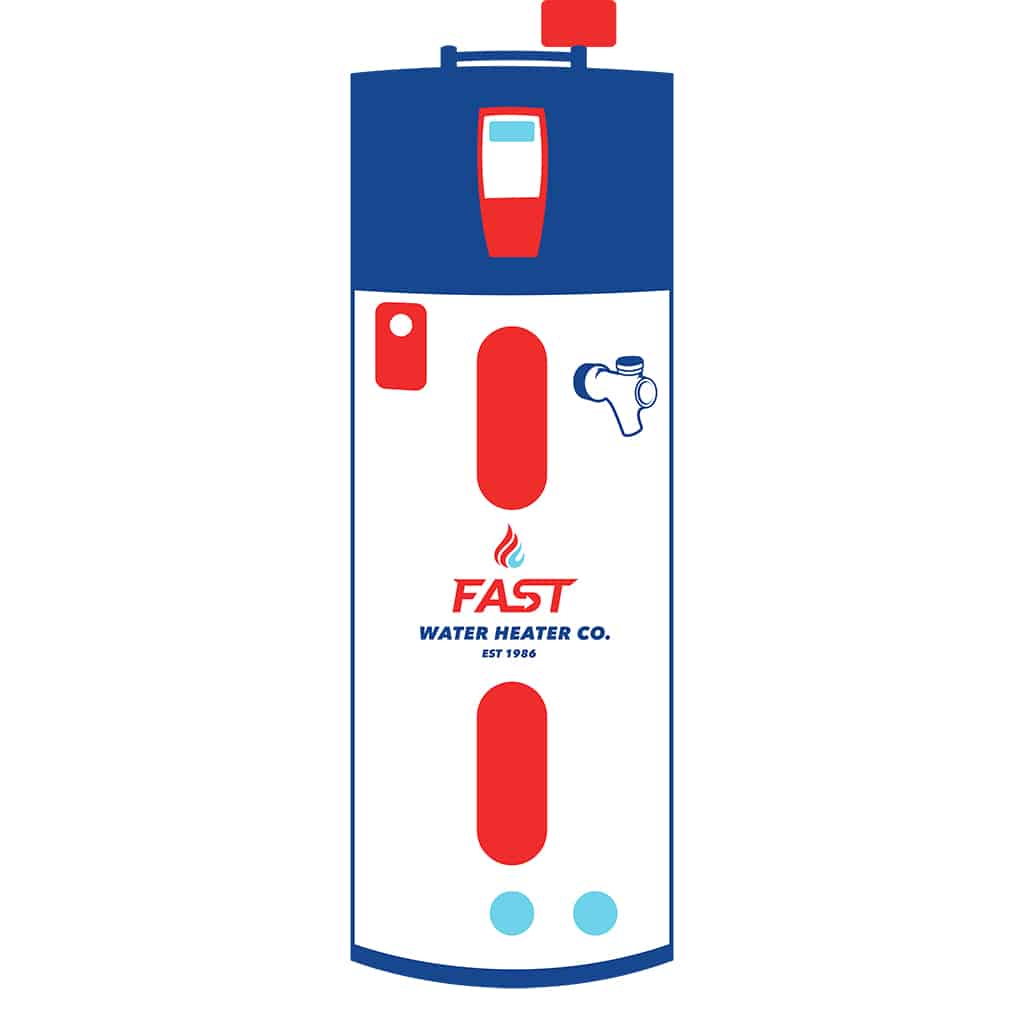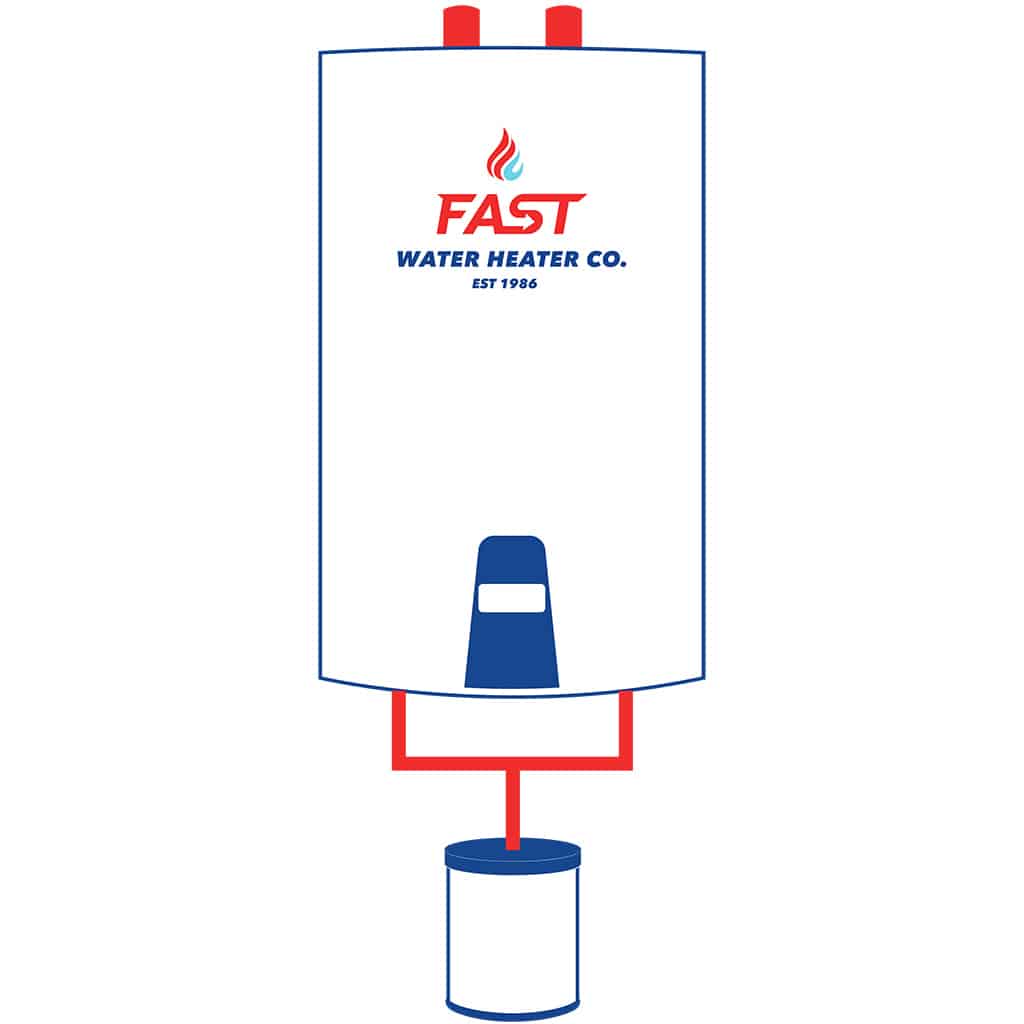Standard Water Heaters for WA, OR, Northern & Southern CA
When you begin searching for a new water heater, you may have more options than you did in the past. Finding the right solution can be confusing — but you don’t have to go about it alone. No matter the size of your home, the experts at Fast Water Heater can help you find a traditional water heater that meets your needs.
It’s no secret that water heaters are some of the most important appliances in our homes, as they provide us with hot water and can last for a long time. As such, it’s vital that you consider efficiency, cost, and longevity when making a decision. Fortunately, our technicians will be with you every step of the way, discussing high-efficiency tank options and walking you through the installation process.
Are you interested in installing an Energy Star water heater? Are you ready to convert from an electric-powered unit to a propane water heater? We can help! Contact us today to learn more about our standard hot water heaters.
Call (425) 636-7038
for fast service
We’re proud to serve customers up and down the West Coast, including the following locations:
- Bothell, WA
- Auburn, WA
- Gardena, CA
- Richmond, CA
- Troutdale, OR
- Seattle, WA
- Portland, OR
- Los Angeles, CA
give us a call to talk water heaters!
(425) 636-7038

Standard Water Heaters

Hybrid Heat Pump Water Heaters

Tankless WATER HEATERs
What Is a Standard Water Heater?
Conventional water heaters are the most common option for homeowners. These units work by holding a ready reservoir of hot water in a tank that can be anywhere from 40 to 120 gallons in size.
When you need hot water in your home — whether you’re washing dishes, taking a shower, or running a load of laundry — the system will release the water from the top of the tank and attempt to replenish it by “heating” additional water that is pulled into the bottom.
GAS WATER HEATERS
Natural gas is the primary fuel-source for water heaters because it is generally more cost-efficient than electricity. In fact, some utility companies offer rebates for switching from an electric-, to a gas-powered water heater.
A gas burner continually heats the water in a storage tank from the bottom of the unit. Traditionally, gas water heaters have a lifetime of 8-12 years, and once they approach this age, most service providers will not perform maintenance, as the cost of the repair could outpace the value of the unit.
Most residential water heaters are either 40-gallons, or 50-gallons, although other capacities on the market are 66-gallons, 75-gallons, 80-gallons and 120-gallons. Within the gas water heater family, there are three different types available: standard tank, Energy Star and tankless water heaters.
Electric Water Heaters
Unlike trading in your fossil-fueled car for a hybrid model to save on fuel costs, switching from a gas to an electric water heater will not save you money. Unlike gasoline, natural gas burns cleaner (and cheaper!) than electricity.
In some regions, electric-powered water heaters are the norm. These electric units are much more efficient than gas-powered units, but will cost you about twice as much in energy bills as a gas heater.
Electric water heaters work from the inside-out, by warming “elements”, or rods, submerged in a water storage tank, transferring heat from the elements to the water. Although electric water heaters operate as much as 50% more efficiently than their gas-powered counterparts, electric water heating bills can be as much as double.
Without going into too much detail, a lot of the cost to heat water with electricity is wasted in the generation and transmission of the electricity in the first place.
What Are the Types of Standard Water Heaters?
As a homeowner, you have many choices regarding standard hot water heaters. There are many fuel types available, so you will typically need to choose from an electric, natural gas, oil, or propane water heater for your home.
GAS WATER HEATERS
Many homeowners choose to install gas-powered standard hot water heaters because they’re highly energy efficient. Gas water heaters tend to have lower operating costs than electric models and heat water at a quick rate.
Electric Water Heaters
An electric water heater could be an excellent option if you don’t currently have a gas line installed on your property. Electric units are also known for their efficiency and generally require less maintenance than their gas counterparts.
OIL WATER HEATERS
If you have a large family that uses a lot of hot water, oil water heaters can be a suitable option for your home. These units are known for having a fast recovery rate and providing hot water when needed. Of course, it’s still important to ensure that the water heater is sized correctly for your household’s specific needs.
Are Standard Water Heaters Safe?
Like any other appliance in your home, standard hot water heaters are safe when they are properly cared for. You will want to schedule routine maintenance for your unit to ensure that there is no sediment collecting at the bottom of the tank. As this sediment builds up, it can have a negative impact on your water heater’s performance, efficiency, and longevity.
STANDARD WATER HEATERS
Typically, electric tanks are rated around .90. You might think that’s as good as a gas tankless, but again, considering the design and the laws of thermodynamics, let’s just consider this a baseline, and not an indication of the same cost savings as you’ll see with a gas tankless water heater. With In this kind of tank, picture two elements getting red hot and transferring heat to your water.
HIGH-EFFICIENCY TANK
These tanks are like standard tanks but better insulated, and are often rated as high as .94-.95, equaling perhaps $10-$15 in annual electric savings.
HYBRID HEAT PUMP
Hybrid heat pump water heaters use the ambient air temperature to preheat your water so it doesn’t have as many degrees to rise. They are housed in a garage, attic, or other unconditioned space. Heat pump water heaters can save up to 50% of your energy costs for water heating and depending on where you live, there are substantial rebates and incentives available to convert from a traditional electric water heater to a heat pump water heater. Hybrid water heaters do have some drawbacks, as they need a dedicated area for placement, and create about as much noise as a dishwasher in use. However, if you can accommodate for these contingencies, you can save significant dollars on your water heating bills and dramatically reduce your energy usage.
Install a Traditional Water Heater Today!
Fast Water Heater has been helping homeowners with their hot water needs since 1986. We proudly specialize in many different makes and models, including standard hot water heaters, to bring you some of the best services around. We can also help you with:
If you’re interested in a high-efficiency tank, we can provide you with a same-day installation if you call us before noon. We also offer a price-match guarantee to bring you unbeatable prices.
Contact us today to schedule an installation for an Energy Star water heater! Our technicians proudly serve various parts of Washington, California, and Oregon, including Bothell, Auburn, Gardena, Richmond, Troutdale, Seattle, Portland, and Los Angeles.
